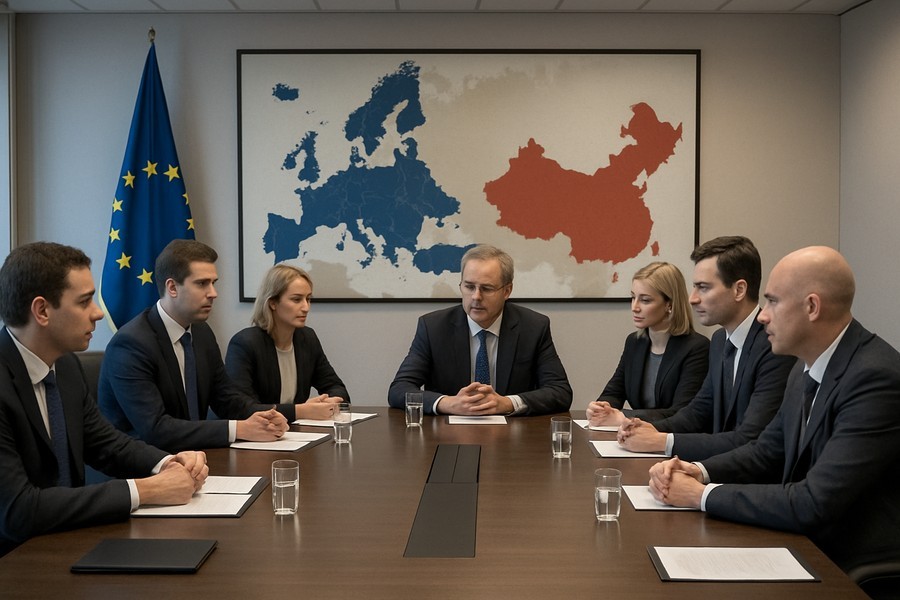
European Union Unlikely to Implement Extreme Tariffs on China
Recently, a high-profile figure in American politics urged European nations to impose heavy tariffs on China, between 50% and 100%, as a means to counteract Russia's invasion of Ukraine. This suggestion was made public via a social media post.
The individual, who has wielded significant political power in the past, argued that these hefty tariffs on China, alongside an immediate halt to all purchases of Russian oil, could significantly contribute to ending the ongoing conflict. He suggested that China's influence over Russia could be weakened by these powerful tariffs.
The Timing and Response
The timing of this bold proposal is noteworthy, given the current efforts to increase economic pressure on Russia and encourage them to negotiate. However, this proposal has not been well-received, particularly by the European Union (EU).
While the EU has shown a willingness to reduce dependence on Russian fossil fuels, it has firmly opposed the suggestion of implementing such high tariffs. Representatives have insisted that any new measures will comply with established EU rules and procedures, which do not apply sanctions extra-territorially. This essentially rules out the proposed triple-digit tariffs.
Why the EU Will Not Implement the Proposed Tariffs
There are three key reasons why the EU is unlikely to follow this proposed path. The first reason is the EU's distinction between tariffs and sanctions. Tariffs are seen as a trade tool, introduced to address market disturbances, while sanctions are a foreign policy tool. The EU generally imposes tariffs following an in-depth investigation and in compliance with World Trade Organization (WTO) rules.
The second reason is the lack of political consensus within the EU to launch such a drastic measure against China, one of its biggest trading partners. The member states have differing views on Beijing, and have struggled to unite on this issue.
The third reason is the potential risks involved. China is known for retaliating against foreign decisions it deems harmful to its interests. The EU is wary of such tit-for-tat behavior and the potential economic impact.
The Potential Impact on Trade Relations
Despite the EU's accusations that China is a key enabler of Russia's actions in Ukraine, it has not taken strong action to limit trade relations as a result. It has instead chosen to blacklist a select number of entities in mainland China and Hong Kong.
Shifting from this approach to imposing 100% tariffs would represent an extreme change in policy, one that is unlikely given the potential for retaliation from China. China has warned against such actions, stating that it will take countermeasures to protect its interests.
Given the current economic challenges at home and abroad, the EU is unlikely to take such a bold step, especially considering the track record of the individual proposing the tariffs. His history of reversing policy decisions could potentially leave European nations in a difficult position.
Experts suggest that these demands are not a serious attempt to exert economic pressure on Russia. Rather, they appear to be a strategy to shift the responsibility onto other nations, knowing that achieving unanimous agreement would be highly challenging.
